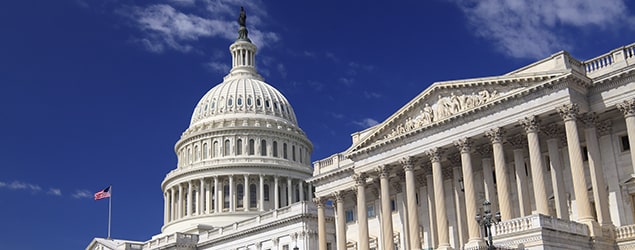Climategate: A green conspiracy?

The Climategate documents — the hundreds of emails and other data hacked from the Climatic Research Unit of England’s East Anglia University — have exposed serious breaches of scientific integrity. They contain evidence of collusion among a small but highly influential group of climate researchers to suppress and even delete key data, to manipulate the scientific peer-review process, to exclude the work of dissenting scientists, and allegedly to evade Freedom of Information requests by destroying requested materials.
Climate alarmists have responded by trying desperately to make the issue go away. They argue that the bad behavior of a few individuals doesn’t invalidate the entire edifice of global warming science. Surely, they ask, you’re not suggesting that the whole theory is just one big massive fraud, are you?
Some are even trying to ridicule the legitimate concerns the documents raise by invoking the specter of some sort of nefarious global conspiracy. At a recent hearing on Capitol Hill, Rep. Jay Inslee (D-Wash.) sarcastically put the question to a number of testifying scientists:
“I just wanted to ask you if you’re part of that massive international conspiracy,” he said to the witnesses, adding with a note of sarcasm, “Are either one of you members of the Trilateral Commission, SPECTRE or KAOS? I just need an answer.”
Writers for a leftist think tank, the Center for American Progress, have similarly picked up the “conspiracy-theory” theme: “Conservatives immediately claimed that these [hacked emails] proved global warming to be a hoax and part of a worldwide conspiracy run by mad scientists who have quashed debate in order to institute a socialist, business-killing cap-and-trade policy.”
The implication is that the only way the whole edifice of global warming science could be a distortion of reality is if there was a huge, secret conspiracy perpetrated by a fiction-like cabal of mad scientists, hidden away in some smoke-filled room plotting the destruction of the world economy.
Well, the fact is that there is a “massive international conspiracy” — only, it’s not of the secret, smoke-filled-room type. The conspirators are united not by a secret plot, but by a shared philosophy that they promote openly and self-righteously: the philosophy of environmentalism.
The fact is that there is a large gap between the scientific claims being advanced regarding the causes and effects of global warming and the political policies being proposed to address it. And that raises a legitimate question about whether the science itself has been corrupted by a questionable moral/political agenda.
Scientists are just as susceptible to the influence of politics and ideology as anyone else in society. And this is an important part of the context that one has to keep in mind in assessing scientific claims. . . We need to keep in mind the long history of scientific distortions that have been used to advance an environmentalist agenda. My position is that global warming is the latest example of this phenomenon.
The fact is that there has been a clear unity of purpose among the proponents of climate fears. There has been a consistent pattern of exaggeration and deception, of context-dropping claims, and of distortion of the facts and the scientific process. And that was clear long before the Climategate documents surfaced.
That unified pattern of distortion has been driven by a widespread commitment to environmentalist ideology. Environmentalism has for decades advanced the idea that any form of human “interference” with nature is inherently wrong, and must therefore be inherently dangerous. It has long advanced a deep animus against industrial capitalism and a desire to see it restrained, undermined, even destroyed.
What explains the massive degree of support for green climate policies and the distorted science used to bolster them is not some sort of secret conspiratorial plot, but the widespread acceptance of green ideology. And the green ideas driving people to distort the truth in the name of “saving the planet” are not hidden, they have been touted openly and proudly for decades in books and newspapers and magazines and documentaries.
In this context, it is worth repeating an infamous statement from 20 years ago from Stephen Schneider, who has for decades been one of the leading proponents of climate alarmism and is one of the people featuring prominently in the leaked emails. In the October 1989 issue of Discover magazine, Schneider was quoted as saying:
On the one hand, as scientists, we are ethically bound to the scientific method, in effect promising to tell the truth, the whole truth, and nothing but — which means that we must include all the doubts, caveats, the ifs, ands, and buts. On the other hand, we are not just scientists but human beings as well. And like most people we’d like to see the world a better place, which in this context translates into our working to reduce the risk of potentially disastrous climate change. To do that we need to get some broad-based support, to capture the public’s imagination. So we have to offer up scary scenarios, make simplified dramatic statements, and make little mention of any doubts we might have. This ‘double ethical bind’ we frequently find ourselves in cannot be solved by any formula. Each of us has to decide what the right balance is between being effective and being honest. I hope that means being both.
If one’s standard of what would make the “world a better place” is out of touch with reality, then it’s not surprising that one will find that one can only advance one’s moral agenda through deception and dishonesty.
The real lesson here is much deeper than some silly conspiracy-theory. It is the role of fundamental ideas in shaping political and cultural events. The real lesson is that ideas matter.



